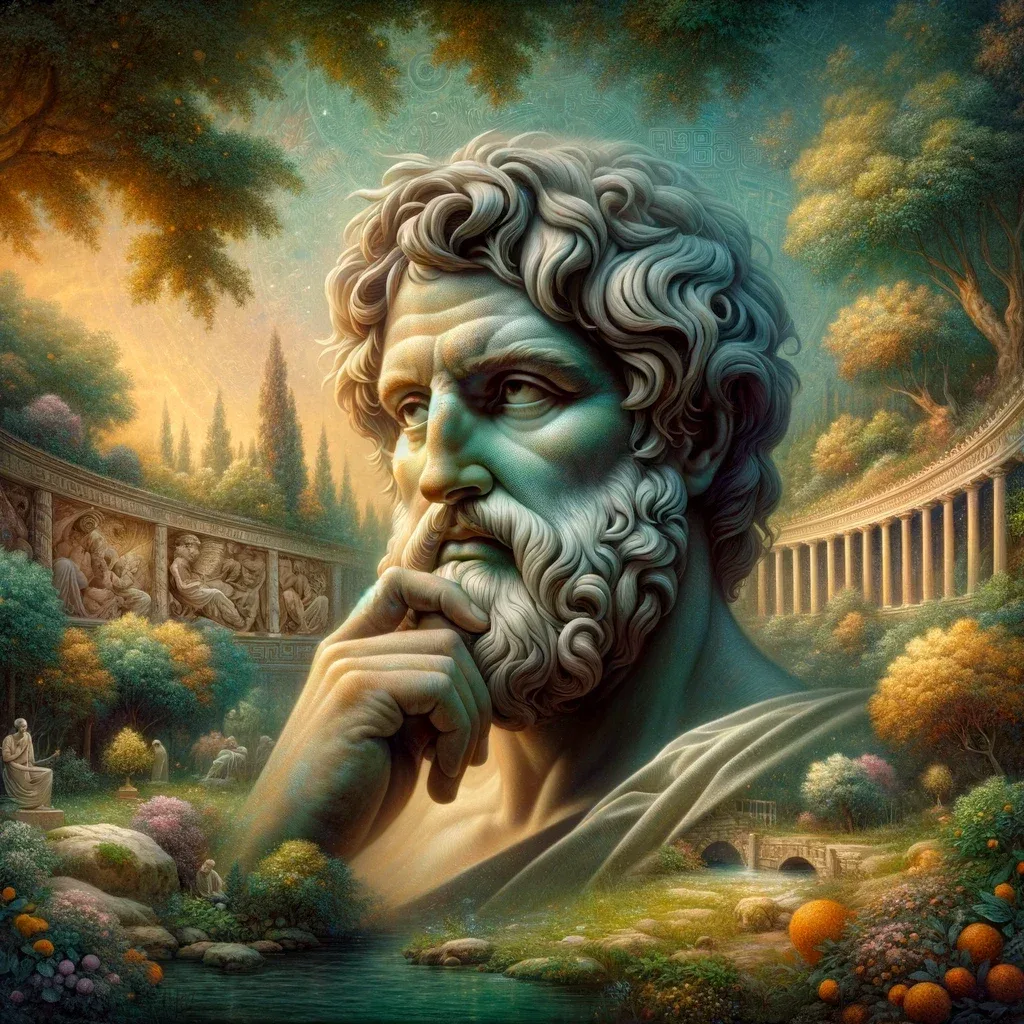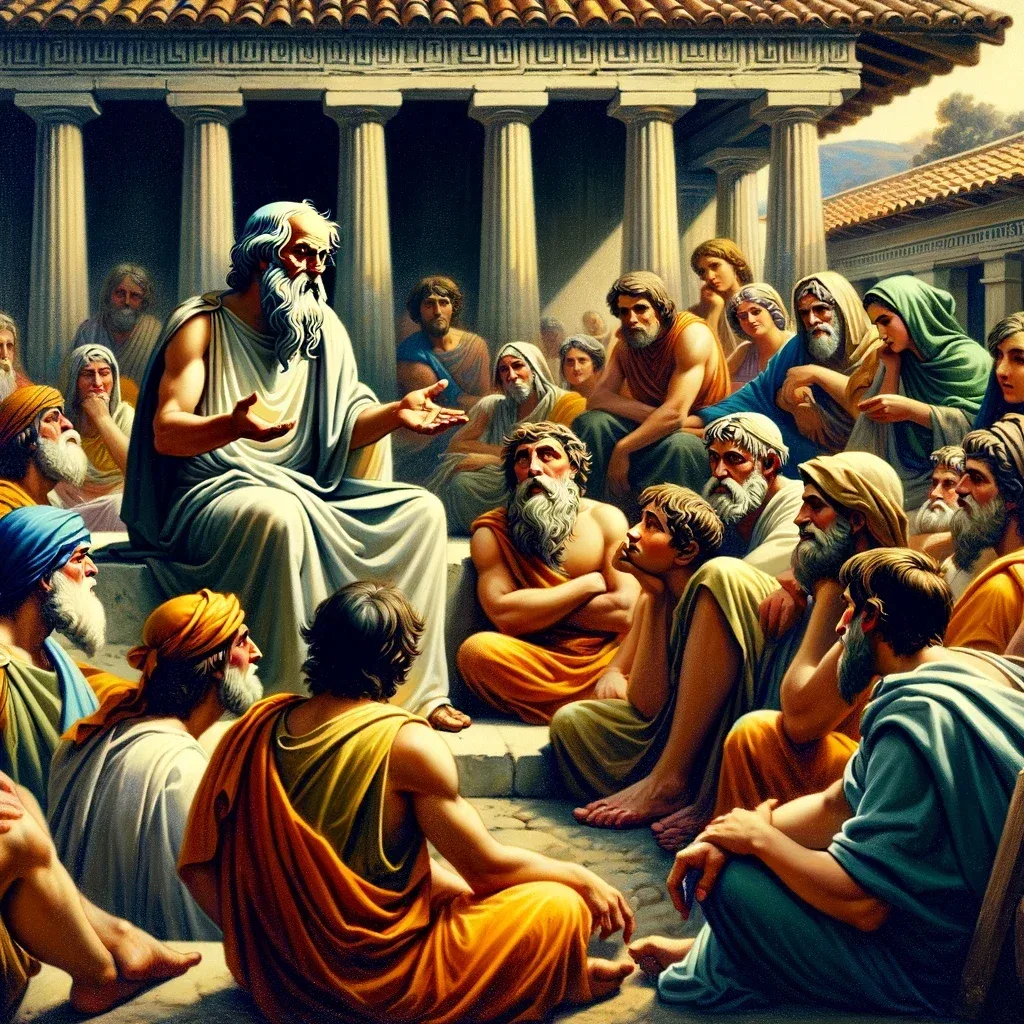Epicurus' paradox, a philosophical proposition dating back to Ancient Greece, continues to be a topic of great interest and debate. This concept, originating from the Greek thinker Epicurus, is a profound question about the existence of evil and the nature of an omnipotent and benevolent God. In this article, we will explore in detail the Epicurus paradox, its components, interpretations, and the contemporary relevance of this intricate philosophical question.

The Emergence of the Paradox

Origins and Historical Context
Epicurus, a philosopher who lived between 341-270 BC, is best known for his contributions to ethics, particularly his defense of hedonism. However, a less explored aspect of his thought is the so-called “Epicurus paradox”. This paradox was conceived in the context of discussions about the nature of the gods and the problem of evil.
Description of the Paradox
Epicurus' paradox is a triad of propositions that appear logically inconsistent when combined:
- If an omnipotent God exists, He can prevent evil.
- If a benevolent God exists, He wants to prevent evil.
- Evil exists.
Philosophical Relevance
These propositions raise a fundamental question: how can evil exist in a world governed by an omnipotent and benevolent being? This paradox not only challenges conventional notions of divinity, but also provokes profound reflections on the nature of evil and human existence.
Interpretations and Debates

Theological Perspectives
Theists, over the centuries, have attempted to resolve the paradox in various ways, often arguing that evil is a necessary consequence of free will or that human suffering serves a greater purpose, unfathomable to us.
Contributions of Other Philosophers
Philosophers such as Saint Augustine and Thomas Aquinas attempted to reconcile the existence of evil with that of a benevolent God. His theories focus on the idea that evil is the absence of good and that the existence of evil can be justified for reasons that transcend human understanding.
Modern Implications
In modern times, Epicurus's paradox has been central in philosophical and theological debates, especially in discussions about atheism and theodicy. It remains a vital tool for exploring the relationship between faith, reason, and the existence of suffering.
Epicurus and the Problem of Evil

Epicurus on the Nature of the Gods
Epicurus believed that gods exist but are indifferent to human affairs. Therefore, for him, the existence of evil does not contradict the existence of gods, but only of gods who are both omnipotent and benevolent.
Evil as Part of the Human Experience
Epicurus saw evil and suffering as inevitable aspects of the human experience. His philosophy was focused on how to live a good life despite the presence of evil, emphasizing the pursuit of pleasure (understood as the absence of suffering) and tranquility of the mind.
Epicurus and Ataraxia
Ataraxia, or tranquility of the mind, was a central goal in Epicurus's philosophy. He believed that by understanding the nature of the world and accepting the existence of evil as a part of life, people could achieve peace and happiness.
Conclusion
Epicurus' paradox remains a significant philosophical tool and starting point for discussions about the existence of God, the problem of evil, and the human condition. While it offers no definitive solutions, it invites us to explore the depths of faith, ethics, and philosophy, stimulating an ongoing dialogue that is as relevant today as it was in Ancient Greece.

FAQ: Epicurus' Paradox
This FAQ provides detailed answers to the most common questions about the Epicurus Paradox, helping to clarify key aspects of this intriguing philosophical concept.
1. What is Epicurus' Paradox?
2. Who was Epicurus?
3. How does Epicurus' paradox impact theology?
4. Does Epicurus' paradox prove the non-existence of God?
5. How did Epicurus view the nature of the gods?
6. What is the relationship between paradox and the problem of evil?
7. How does Epicureanism view the pursuit of happiness?
8. Is paradox relevant in contemporary philosophy?
9. Are there answers to Epicurus' paradox?
10. Does the paradox influence other areas besides philosophy?






